I'm asking for your help,I'm facing a problem with the tJavaFlex component.
editorName ;ProductName ;end_date_resorption_versions;end_date_supported_versions ;end_date_recommended_versions
EditorA;PN_A;31/03/2017,31/03/2017,31/03/2017,31/03/2017,31/03/2017,31/03/2017;null;null
EditorA;PN_A;30/06/2024;null;30/06/2024
EditorA;PN_A;30/11/2020,30/06/2017;null;null
EditorA;PN_A;null;30/06/2024;null
EditorA;PN_A ;null;null;null
EditorA;PN_A;30/11/2020,30/11/2020;null;null
EditorB;PN_B;18/05/2017,31/03/2017,31/01/20;null;null
EditorB;PN_B;03/06/2024;01/02/2020;30/06/2024
EditorB;PN_B;23/12/2014 ;null;null
EditorB;PN_B;null;01/02/2020;30/06/2020
EditorB;PN_B;null;null;null
EditorB;PN_B;12/12/2012,31/12/2020;null;13/01/2020
As u can see there are list of date (string format) in same column.
What i want to do ==> it's to find the min date for each column (not row)
My approach is this :
- By column, store all values in an array
- convert ListString to ListDate
- Find Date min in each ListDate
I thought the best way to do that was to use the tJavaFlex component.
----------------------------------------------------------------------------------------------
----------------------------------------------------------------------------------------------
**Start Code :**
SimpleDateFormat sdf = new SimpleDateFormat("dd/MM/yyyy");
// Array for end_date_resorption_versions
List<String> myStringList_edrv = new ArrayList<>();
List<Date> dates = new ArrayList<>();
// Array for end_date_supported_versions
List<String> myStringList_edsv = new ArrayList<>();
List<Date> dates_edsv = new ArrayList<>();
// Array for end_date_recommended_versions
List<String> myStringList_edrev = new ArrayList<>();
List<Date> dates_edrev = new ArrayList<>();
----------------------------------------------------------------------------------------------
----------------------------------------------------------------------------------------------
**main code :**
if (row4.end_date_resorption_versions == null ){
row4.end_date_resorption_versions = "31/12/2099";
}
if (row4.end_date_supported_versions == null ){
row4.end_date_supported_versions = "31/12/2099";
}
if (row4.end_date_recommended_versions == null) {
row4.end_date_recommended_versions = "31/12/2099";
}
// populating data :
myStringList_edrv.addAll(Arrays.asList(row4.end_date_resorption_versions.split(",")));
myStringList_edsv.addAll(Arrays.asList(row4.end_date_supported_versions.split(",")));
myStringList_edrev.addAll(Arrays.asList(row4.end_date_recommended_versions.split(",")));
----------------------------------------------------------------------------------------------
----------------------------------------------------------------------------------------------
**end code :**
// transform ListString to ListDate : end_date_resorption_versions
for (int i = 0 ; i < myStringList_edrv.size(); i++) {
dates.add(sdf.parse(myStringList_edrv.get(i)));
}
// transform ListString to ListDate : end_date_supported_versions
for (int i = 0 ; i < myStringList_edsv.size(); i++) {
dates_edsv.add(sdf.parse(myStringList_edsv.get(i)));
}
// transform ListString to ListDate : end_date_recommended_versions
for (int i = 0 ; i < myStringList_edrev.size(); i++) {
dates_edrev.add(sdf.parse(myStringList_edrev.get(i)));
}
// getMinDate : end_date_resorption_versions
row6.out_date_edrv = sdf.format(Collections.min(dates));
// getMinDate : end_date_supported_versions
row6.out_date_edsv = sdf.format(Collections.min(dates_edsv));
// getMinDate : end_date_recommended_versions
row6.out_date_edrev = sdf.format(Collections.min(dates_edrev));
row6.out_editor_name = row4.editor_name;
row6.out_product_name = row4.product_name;
System.out.println("out_date_edrv => " + row6.out_date_edrv);
System.out.println("out_date_edsv => " + row6.out_date_edsv);
System.out.println("out_date_edrev => " + row6.out_date_edrev);
all my values are null, while the results present in the system.out.println are good
my job design is :
tPostgresqlInput----row4(Main)----tJavaFlex_1----row6(Main)----tLogRow
some help would really be appreciated.
